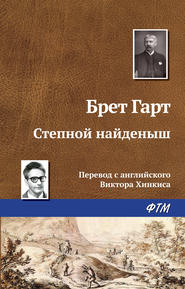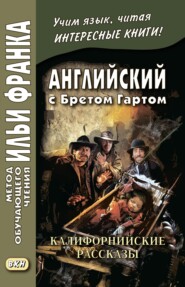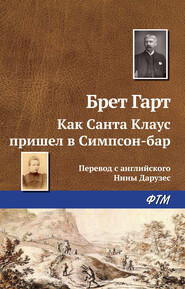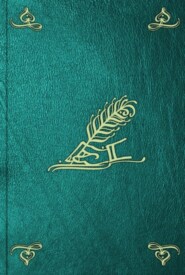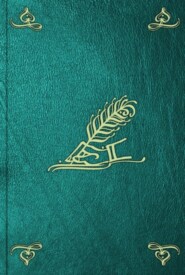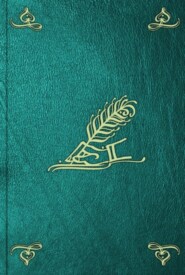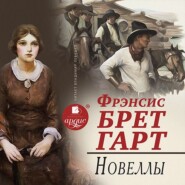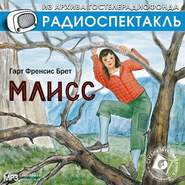По всем вопросам обращайтесь на: info@litportal.ru
(©) 2003-2025.
✖
Gabriel Conroy
Автор
Год написания книги
2017
Настройки чтения
Размер шрифта
Высота строк
Поля
Owing to the insecure condition of the county jail at One Horse Gulch, and possibly some belief in the equal untrustworthiness of the people, the sheriff conducted his prisoner, accompanied by Olly, to Wingdam. Nevertheless, Olly's statement of the changed condition of public sentiment, or rather its pre-occupation with a calamity of more absorbing interest, was in the main correct. The news of the recapture of Gabriel by his legal guardian awoke no excitement nor comment. More than this, there was a favourable feeling toward the prisoner. The action of the Vigilance Committee had been unsuccessful, and had terminated disastrously to the principal movers therein. It is possible that the morality of their action was involved in their success. Somehow the whole affair had not resulted to the business interests of the Gulch. The three most prominent lynchers were dead – and clearly in error! The prisoner, who was still living, was possibly in the right. The Silverpolis Messenger, which ten days before had alluded to the "noble spectacle of a free people outraged in their holiest instincts, appealing to the first principles of Justice and Order, and rallying as a single man to their support," now quietly buried the victims and their motives from the public eye beneath the calm statement that they met their fate "while examining the roof of the Court House with a view to estimate the damage caused by the first shock of the earthquake." The Banner favoured the same idea a little less elegantly, and suggested ironically that hereafter "none but experts should be allowed to go foolin' round the statue of Justice." I trust that the intelligent reader will not accuse me of endeavouring to cast ridicule upon the general accuracy of spontaneous public emotion, nor the infallibility of the true democratic impulse, which (I beg to quote from the Messenger), "in the earliest ages of our history enabled us to resist legalised aggression, and take the reins of government into our own hands," or (I now refer to the glowing language of the Banner), "gave us the right to run the machine ourselves and boss the job." And I trust that the reader will observe in this passing recognition of certain inconsistencies in the expression and action of these people, only the fidelity of a faithful chronicler, and no intent of churlish criticism nor moral or political admonition, which I here discreetly deprecate and disclaim.
Nor was there any opposition when Gabriel, upon the motion of Lawyer Maxwell, was admitted to bail pending the action of the Grand Jury, nor any surprise when Mr. Dumphy's agent and banker came forward as his bondsman for the sum of fifty thousand dollars. By one of those strange vicissitudes in the fortunes of mining speculation, this act by Mr. Dumphy was looked upon as an evidence of his trust in the future of the unfortunate mine of which Gabriel had been original locator and superintendent, and under that belief the stock rallied slightly. "It was a mighty sharp move of Pete Dumphy's bailin' thet Gabe, right in face of that there 'dropped lead' in his busted-up mine! Oh, you've got to set up all night to get any points to show him!" And, to their mutual surprise, Mr. Dumphy found himself more awe-inspiring than ever at One Horse Gulch, and Gabriel found himself a free man, with a slight popular flavour of martyrdom about him.
As he still persistently refused to enter again upon the premises which he had deeded to his wife on the day of the murder, temporary lodgings were found for him and Olly at the Grand Conroy Hotel. And here Mrs. Markle, although exhibiting to Lawyer Maxwell the greatest concern in Gabriel's trouble, by one of those inconsistencies of the sex which I shall not attempt to explain, treated the unfortunate accused with a degree of cold reserve that was as grateful, I fear, to Gabriel, as it was unexpected. Indeed, I imagine that if the kind-hearted widow had known the real comfort and assurance that the exasperating Gabriel extracted from her first cold and constrained greeting, she would have spent less of her time in consultation with Maxwell regarding his defence. But perhaps I am doing a large-hearted and unselfish sex a deep injustice. So I shall content myself with transcribing part of a dialogue which took pace between them at the Grand Conroy.
Mrs. Markle (loftily, and regarding the ceiling with cold abstraction): "We can't gin ye here, Mister Conroy, the French style and attention ye're kinder habitooal to in your own house on the Hill, bein' plain folks and mounting ways. But we know our place, and don't reckon to promise the comforts of a home! Wot with lookin' arter forty reg'lar and twenty-five transient – ef I don't happen to see ye much myself, Mr. Conroy, ye'll understand. Ef ye ring thet there bell one o' the help will be always on hand. Yer lookin' well, Mr. Conroy. And bizness, I reckon" (the reader will here observe a ladylike ignoring of Gabriel's special trouble), "ez about what it allers waz, though judging from remarks of transients, it's dull!"
Gabriel (endeavouring to conceal a large satisfaction under the thin glowing of conventional sentiment): "Don't let me nor Olly put ye out a cent, Mrs. Markle – a change bein' ordered by Olly's physicians – and variety bein', so to speak, the spice o' life! And ye're lookin' well, Mrs. Markle; that ez" (with a sudden alarm at the danger of compliment), "so to speak, ez peart and strong-handed ez ever! And how's thet little Manty o' yours gettin' on? Jist how it was thet me and Olly didn't get to see ye before ez mighty queer! Times and times ag'in" (with shameless mendacity) "hez me and thet child bin on the p'int o' coming, and suthin' hez jest chipped in and interfered!"
Mrs. Markle (with freezing politeness): "You do me proud! I jest dropped in ez a matter o' not bein' able allers to trust to help. Good night, Mister Conroy. I hope I see you well! Ye kin jest" (retiring with matronly dignity), "ye kin jest touch onto that bell thar, if ye're wantin' anything, and help'll come to ye! Good-night!"
Olly (appearing a moment later at the door of Gabriel's room, truculent and suspicious): "Afore I'd stand thar – chirpin' with thet crockidill – and you in troubil, and not knowin' wot's gone o' July – I'd pizen myself!"
Gabriel (blushing to the roots of his hair, and conscience-stricken to his inmost soul): "It's jest passin' the time o' day, Olly, with old friends – kinder influencin' the public sentyment and the jury. Thet's all. It's the advice o' Lawyer Maxwell, ez ye didn't get to hear, I reckon, – thet's all!"
But Gabriel's experience in the Grand Conroy Hotel was not, I fear, always as pleasant. A dark-faced, large-featured woman, manifestly in mourning, and as manifestly an avenging friend of the luckless deceased, in whose taking off Gabriel was supposed to be so largely instrumental, presently appeared at the Grand Conroy Hotel, waiting the action of the Grand Jury. She was accompanied by a dark-faced elderly gentleman, our old friend Don Pedro – she being none other than the unstable-waisted Manuela of Pacific Street – and was, I believe, in the opinion of One Horse Gulch, supposed to be charged with convincing and mysterious evidence against Gabriel Conroy. The sallow-faced pair had a way of meeting in the corridors of the hotel and conversing in mysterious whispers in a tongue foreign to One Horse Gulch and to Olly, strongly suggestive of revenge and concealed stilettos, that was darkly significant! Happily, however, for Gabriel, he was presently relieved from their gloomy espionage by the interposition of a third party – Sal Clark. That individual, herself in the deepest mourning, and representing the deceased in his holiest affections, it is scarcely necessary to say at once resented the presence of the strangers. The two women glared at each other at the public table, and in a chance meeting in the corridor of the hotel.
"In the name of God, what have we here in this imbecile and forward creature, and why is this so and after this fashion?" asked Manuela of Don Pedro.
"Of a verity, I know not," replied Don Pedro, "it is most possibly a person visited of God! – a helpless being of brains. Peradventure, a person filled with aguardiente or the whisky of the Americans. Have a care, little one, thou smallest Manuela" (she weighed at least three hundred pounds), "that she does thee no harm!"
Meanwhile Miss Sarah Clark relieved herself to Mrs. Markle in quite as positive language. "Ef that black mulattar and that dried-up old furriner reckons they're going to monopolise public sentyment in this yer way they're mighty mistaken. Ef thar ever was a shameless piece et's thet old woman – and, goodness knows, the man's a poor critter enyway! Ef anybody's goin' to take the word of that woman under oath, et's mor'n Sal Clark would do – that's all! Who ez she – enyway? I never heard her name mentioned afore!"
And ridiculous as it may seem to the unprejudiced reader, this positive expression and conviction of Miss Clark, like all positive convictions, was not without its influence on the larger unimpanelled Grand Jury of One Horse Gulch, and, by reflection, at last on the impanelled jury itself.
"When you come to consider, gentlemen," said one of those dangerous characters – a sagacious, far-seeing juror – "when you come to consider that the principal witness o' the prosecution and the people at the inquest don't know this yer Greaser woman, and kinder throws off her testimony, and the prosecution don't seem to agree, it looks mighty queer. And I put it to you as far-minded men, if it ain't mighty queer? And this yer Sal Clark one of our own people."
An impression at once inimical to the new mistress and stranger, and favourable to the accused Gabriel, instantly took possession of One Horse Gulch.
Meanwhile the man who was largely responsible for this excitement and these conflicting opinions maintained a gravity and silence as indomitable and impassive as his alleged victim, then slumbering peacefully in the little cemetery on Round Hill. He conversed but little even with his counsel and friend, Lawyer Maxwell, and received with his usual submissiveness and gentle deprecatoriness the statement of that gentleman that Mr. Dumphy had already bespoken the services of one of the most prominent lawyers of San Francisco – Mr. Arthur Poinsett – to assist in the defence. When Maxwell added that Mr. Poinsett had expressed a wish to hold his first consultation with Gabriel privately, the latter replied with his usual simplicity, "I reckon I've nowt to say to him ez I hain't said to ye, but it's all right!"
"Then I'll expect you over to my office at eleven to-morrow?" asked Maxwell.
"Thet's so," responded Gabriel, "though I reckon thet anything you and him might fix up to be dumped onto thet jury would be pleasin' and satisfactory to me."
At a few minutes of eleven the next morning Mr. Maxwell, in accordance with a previous understanding with Mr. Poinsett, put on his hat and left his office in the charge of that gentleman that he might receive and entertain Gabriel in complete privacy and confidence. As Arthur sat there alone, fine gentleman as he was and famous in his profession, he was conscious of a certain degree of nervousness that galled his pride greatly. He was about to meet the man whose cherished sister six years ago he had stolen! Such, at least, Arthur felt was Gabriel's opinion. He had no remorse nor consciousness of guilt or wrongdoing in that act. But in looking at the fact in his professional habit of viewing both sides of a question, he made this allowance for the sentiment of the prosecution, and putting himself, in his old fashion, in the position of his opponent, he judged that Gabriel might consistently exhibit some degree of indignation at their first meeting. That there was, however, really any moral question involved, he did not believe. The girl, Grace Conroy, had gone with him readily, after a careful and honourable statement of the facts of her situation, and Gabriel's authority or concern in any subsequent sentimental complication he utterly denied. That he, Arthur, had acted in a most honourable, high-minded, and even weakly generous fashion towards Grace, that he had obeyed her frivolous whims as well as her most reasonable demands, that he had gone back to Starvation Camp on a hopeless quest just to satisfy her, that everything had happened exactly as he had predicted, and that when he had returned to her he found that she had deserted him– these – these were the facts that were incontrovertible! Arthur was satisfied that he had been honourable and even generous – he was quite convinced that this very nervousness that he now experienced, was solely the condition of a mind too sympathetic even with the feelings of an opponent in affliction. "I must not give way to this absurd Quixotic sense of honour," said this young gentleman to himself, severely.
Nevertheless, at exactly eleven o'clock, when the staircase creaked with the strong steady tread of the giant Gabriel, Arthur felt a sudden start to his pulse. There was a hesitating rap at the door – a rap that was so absurdly inconsistent with the previous tread on the staircase – as inconsistent as were all the mental and physical acts of Gabriel – that Arthur was amused and reassured. "Come in," he said, with a return of his old confidence, and the door opened to Gabriel, diffident and embarrassed.
"I was told by Lawyer Maxwell," said Gabriel slowly, without raising his eyes, and only dimly cognisant of the slight, strong, elegant figure before him – "I was told that Mr. Arthur Poinsett reckoned to see me to-day at eleven o'clock – so I came. Be you Mr. Poinsett?" (Gabriel here raised his eyes) – "be you, eh? – God A'mighty! why, it's – eh? – why – I want to know! – it can't be! – yes, it is!" He stopped – the recognition was complete!
Arthur did not move. If he had expected an outburst from the injured man before him he was disappointed. Gabriel passed his hard palm vaguely and confusedly across his forehead and through his hair, and lifted and put back behind his ears two tangled locks. And then, without heeding Arthur's proffered hand, yet without precipitation, anger, or indignation, he strode toward him, and asked calmly and quietly, as Arthur himself might have done, "Where is Grace?"
"I don't know," said Arthur, bluntly. "I have not known for years. I have never known her whereabouts, living or dead, since the day I left her at a logger's house to return to Starvation Camp to bring help to you." (Arthur could not resist italicising the pronoun, nor despising himself for doing it when he saw that the full significance of his emphasis touched the man before him.) "She was gone when I returned; where, no one knew! I traced her to the Presidio, but there she had disappeared."
Gabriel raised his eyes to Arthur's. The impression of nonchalant truthfulness which Arthur's speech always conveyed to his hearer, an impression that he did not prevaricate because he was not concerned sufficiently in his subject, was further sustained by his calm, clear eyes. But Gabriel did not speak, and Arthur went on —
"She left the logger's camp voluntarily, of her own free will, and doubtless for some reason that seemed sufficient to her. She abandoned me – if I may so express myself – left my care, relieved me of the responsibility I held towards her relatives" – he continued, with the first suggestion of personal apology in his tones – "without a word of previous intimation. Possibly she might have got tired of waiting for me. I was absent two weeks. It was the tenth day after my departure that she left the logger's hut."
Gabriel put his hand in his pocket and deliberately drew out the precious newspaper slip he had once shown to Olly. "Then thet thar 'Personal' wozent writ by you, and thet P. A. don't stand for Philip Ashley?" asked Gabriel, with a hopeless dejection in his tone.
Arthur glanced quickly over the paper, and smiled. "I never saw this before," he said. "What made you think I did it?" he asked curiously.
"Because July – my wife that was – said that P. A. meant you," said Gabriel, simply.
"Oh! she said so, did she?" said Arthur, still smiling.
"She did. And ef it wasn't you, who was it?"
"I really don't know," returned Arthur, carelessly; "possibly it might have been herself. From what I have heard of your wife, I think this might be one, and perhaps the most innocent, of her various impostures."
Gabriel cast down his eyes and for a moment was gravely silent. Then the look of stronger inquiry and intelligence that he had worn during the interview faded utterly from his face, and he began again in his old tone of apology. "For answerin' all my questions, I'm obliged to ye, Mr. Ashley, and it's right good in ye to remember ol' times, and ef I hev often thought hard on ye, ye'll kinder pass that by ez the nat'rel allowin's of a man ez was worried about a sister ez hasn't been heerd from sens she left with ye. And ye mustn't think this yer meetin' was o' my seekin'. I kinder dropped in yer," he added wearily, "to see a man o' the name o' Poinsett. He allowed to be yer at eleving o'clock – mebbee it's airly yet – mebbee I've kinder got wrong o' the place!" and he glanced apologetically around the room.
"My name is Poinsett," said Arthur, smiling, "the name of Philip Ashley, by which you knew me, was merely the one I assumed when I undertook the long overland trip." He said this in no tone of apology or even explanation, but left the impression on Gabriel's mind that a change of name, like a change of dress, was part of the outfit of a gentleman emigrant. And looking at the elegant young figure before him, it seemed exceedingly plausible. "It was as Arthur Poinsett, the San Francisco lawyer, that I made this appointment with you, and it is now as your old friend Philip Ashley that I invite your confidence, and ask you to tell me frankly the whole of this miserable business. I have come to help you, Gabriel, for your own – for your sister's sake. And I think I can do it!" He held out his hand again, and this time not in vain; with a sudden frank gesture it was taken in both of Gabriel's, and Arthur felt that the greatest difficulty he had anticipated in his advocacy of Gabriel's cause had been surmounted.
"He has told me the whole story, I think," said Arthur, two hours later, when Maxwell returned and found his associate thoughtfully sitting beside the window alone. "And I believe it. He is as innocent of this crime as you or I. Of that I have always been confident. How far he is accessory after the fact – I know he is not accessory before– is another question. But his story, that to me is perfectly convincing, I am afraid won't do before a jury and the world generally. It involves too much that is incredible, and damning to him secondarily if believed. We must try something else. As far as I can see, really, it seems that his own suggestion of a defence, as you told it to me, has more significance in it than the absurdity you only saw. We must admit the killing, and confine ourselves to showing excessive provocation. I know something of the public sentiment here, and the sympathies of the average jury, and if Gabriel should tell them the story he has just told me, they would hang him at once! Unfortunately for him, the facts show a complication of property interests and impostures on the part of his wife, of which he is perfectly innocent, and which are not really the motive of the murder, but which the jury would instantly accept as a sufficient motive. We must fight, understand, this very story from the outset; you will find it to be the theory of the prosecution; but if we can keep him silent it cannot be proved except by him. The facts are such that if he had really committed the murder he could have defied prosecution, but through his very stupidity and blind anxiety to shield his wife, he has absolutely fixed the guilt upon himself."
"Then you don't think that Mrs. Conroy is the culprit?" asked Maxwell.
"No," said Arthur; "she is capable, but not culpable. The real murderer has never been suspected nor his presence known to One Horse Gulch. But I must see him again, and Olly, and you must hunt up a Chinaman – one Ah Fe – whom Gabriel tells me brought him the note, and who is singularly enough missing, now that he is wanted."
"But you can't use a Chinaman's evidence before a jury?" interrupted Maxwell.
"Not directly; but I can find Christian Caucasians who would be willing to swear to the facts he supplied them with. I shall get at the facts in a few days – and then, my dear fellow," continued Arthur, laying his hand familiarly and patronisingly on the shoulder of his senior, "and then you and I will go to work to see how we can get rid of them."
When Gabriel recounted the events of the day to Olly, and described his interview with Poinsett, she became furiously indignant. "And did that man mean to say he don't know whether Gracey is livin' or dead? And he pertendin' to hev bin her bo?"
"In coorse," explained Gabriel; "ye disremember, Olly, that Gracey never hez let on to me, her own brother, whar she ez, and she wouldn't be going to tell a stranger. Thar's them personals as she never answered!"
"Mebbe she didn't want to speak to him ag'in," said Olly, fiercely, with a toss of her curls. "I'd like to know what he'd bin' sayin' to her – like his impudence. Enny how he ought to hev found her out, and she his sweetheart! Why didn't he go right off to the Presidio? What did he come back for? Not find her, indeed! Why, Gabe, do you suppose as July won't find you out soon – why, I bet anythin' she knows jest whar you are" (Gabriel trembled and felt an inward sinking), "and is on'y waitin' to come forward to the trial. And yer you are taken in ag'in and fooled by these yer lawyers! – you old Gabe, you. Let me git at thet Philip – Ashley Poinsett – thet's all!"
CHAPTER IV.
WHAT AH FE DOES NOT KNOW
Thus admonished by the practical-minded Olly, Gabriel retired precipitately to the secure fastnesses of Conroy's Hill, where, over a consolatory pipe in his deserted cabin, he gave himself up to reflections upon the uncertainty of the sex and the general vagaries of womanhood. At such times he would occasionally extend his wanderings to the gigantic pine tree which still towered pre-eminently above its fellows in ominous loneliness, and seated upon one of its outlying roots, would gently philosophise to himself regarding his condition, the vicissitudes of fortune, the awful prescience of Olly, and the beneficence of a Creator who permitted such awkward triviality and uselessness as was incarnate in himself to exist at all! Sometimes, following the impulse of habit, he would encroach abstractedly upon the limits of his own domain, and find himself under the shadow of his own fine house on the hill, from which, since that eventful parting with his wife, he had always rigidly withheld his foot. As soon as he would make this alarming discovery, he would turn back in honourable delicacy and a slight sense of superstitious awe. Retreating from one of these involuntary incursions one day, in passing through an opening in a little thicket of "buckeye" near his house, he stumbled over a small workbasket lying in the withered grass, apparently mislaid or forgotten. Gabriel instantly recognised it as the property of his wife, and as quickly recalled the locality as one of her favourite resorts during the excessive mid-day heats. He hesitated and then passed on, and then stopped and returned again awkwardly and bashfully. To have touched any property of his wife's, after their separation, was something distasteful and impossible to Gabriel's sense of honour; to leave it there the spoil of any passing Chinaman, or the prey of the elements, was equally inconsistent with a certain respect which Gabriel had for his wife's weaknesses. He compromised by picking it up with the intention of sending it to Lawyer Maxwell, as his wife's trustee. But in doing this, to Gabriel's great alarm (for he would as soon have sacrificed the hand that held this treasure as to have exposed its contents in curiosity or suspicion), part of that multitudinous contents overflowed and fell on the ground, and he was obliged to pick them up and replace them. One of them was a baby's shirt – so small it filled the great hand that grasped it. In Gabriel's emigrant experience, as the frequent custodian and nurse of the incomplete human animal, he was somewhat familiar with those sacred, mummy-like enwrappings usually unknown to childless men, and he recognised it at once.
He did not replace it in the basket, but, with a suffused cheek and an increased sense of his usual awkwardness, stuffed it into the pocket of his blouse. Nor did he send the basket to Lawyer Maxwell, as he had intended, and in fact omitted any allusion to it in his usual account to Olly of his daily experience. For the next two days he was peculiarly silent and thoughtful, and was sharply reprimanded by Olly for general idiocy and an especial evasion of some practical duties.
"Yer's them lawyers hez been huntin' ye to come over and examine that there Chinaman, Ah Fe, ez is jest turned up ag'in, and you ain't no whar to be found; and Lawyer Maxwell sez it's a most important witness. And whar' bouts was ye found? Down in the Gulch, chirpin' and gossipin' with that Arkansas family, and totin' round Mrs. Welch's baby. And you a growed man, with a fammerly of yer own to look after. I wonder ye ain't got more sabe! – prancin' round in this yer shiftless way, and you on trial, and accused o' killin' folks. Yer a high ole Gabe – rentin' yerself out fur a dry nuss for nothin'!"
Gabriel (colouring and hastily endeavouring to awaken Olly's feminine sympathies): "It waz the powerfullest, smallest baby – ye oughter get to see it, Olly! 'Tain't bigger nor a squirrel – on'y two weeks old yesterday!"
Olly (outwardly scornful, but inwardly resolving to visit the phenomenon next week): "Don't stand yawpin' here, but waltz down to Lawyer Maxwell and see that Chinaman."
Gabriel reached the office of Lawyer Maxwell just as that gentleman and Arthur Poinsett were rising from a long, hopeless, and unsatisfactory examination of Ah Fe. The lawyers had hoped to be able to establish the fact of Gabriel's remoteness from the scene of the murder by some corroborating incident or individual that Ah Fe could furnish in support of the detailed narrative he had already given. But it did not appear that any Caucasian had been encountered or met by Ah Fe at the time of his errand. And Ah Fe's memory of the details he had already described was apparently beginning to be defective; it was evident nothing was to be gained from him even if he had been constituted a legal witness. And then, more than all, he was becoming sullen!
"We are afraid that we haven't made much out of your friend, Ah Fe," said Arthur, taking Gabriel's hand. "You might try if you can revive his memory, but it looks doubtful."






